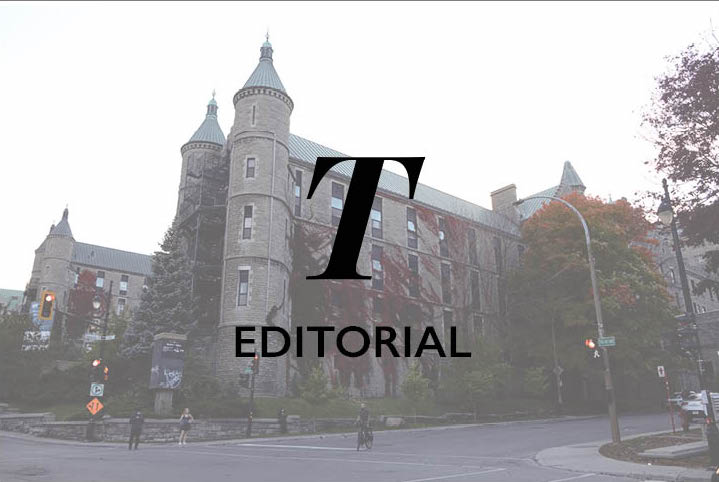On Sept. 4, students joined forces with Milton-Parc residents to protest the privatization of the old Royal Victoria Hospital. The building’s fate has remained unclear since it was decommissioned in 2015. In July, it was converted into a shelter for the unhoused during the COVID-19 pandemic. Although the City of Montreal has announced that it will remain as a shelter until at least 2021, the Societe Quebecoise des Infrastructures (SQI) is currently developing plans to repurpose the site, and McGill has already appropriated several of its buildings for teaching and research.
No plans have been finalized yet, but activists are concerned that the property could end up in the hands of private developers, who may try to build expensive condo units on the property. Aside from an information session in 2017, local residents have not been consulted, and the project has proceeded without debate at Quebec’s National Assembly. As the hospital is built on public land, excluding the public from the decision-making process is tantamount to disenfranchisement. It is incumbent upon public officials to prioritize their constituents over private interests by organizing consultations with community members to determine the property’s future. It is equally imperative that the McGill community, from administrators to students across Montreal, collaborate with Milton-Parc residents to pressure authorities to respect public interests.
The idea that the hospital should be privatized is incredibly insensitive to the unhoused population. Gentrification is already contributing to a housing crisis in Montreal. In recent years, rising eviction rates have led to a precipitous surge in homelessness, as the housing crisis, together with related economic problems, have pushed financially struggling citizens into poverty. Establishing new condo units would add to this by raising the cost of living in the Milton-Parc neighbourhood, thus pushing lower-income residents out. For Montreal to allow a developer to privatize the hospital, which currently serves the unhoused community, would be unconscionably callous and unwise because it would deepen the crisis.
Montreal has historically disdained its homeless as a publicity problem. Even worse, in many cases, homeless people cannot be tested for COVID-19 because many testing facilities require people to present a permanent address. This is particularly striking considering that Montreal’s unhoused population is disproportionately composed of Indigenous people and other minorities, whose present economic tribulations ultimately stem from centuries of systemic racism and colonial oppression. By antagonizing these unhoused people rather than implementing appropriate solutions to underlying economic factors, the city not only fails to address its housing crisis, it also invokes the memory of colonial tyranny by perpetuating racial injustice.
Montreal must avoid any measures that could exacerbate the situation, including privatizing the Royal Victoria Hospital. Instead, officials should address the problem by converting the space into long-term affordable or social housing units. Psychological research indicates that when unhoused people are provided housing first, before other services such as career training, their conditions are significantly improved.
At the very least, such solutions would serve public interests rather than private developers’ financial interests. Whatever the solution, it must have the consent of community members. By failing to listen to their concerns, public officials fail in their basic duty to serve their constituents. As co-habitants of the Milton-Parc area, McGill students must recognize this injustice and stand with residents in demanding consultations. Likewise, because we contribute to gentrification, students must take an active role in supporting Montreal’s unhoused, by taking part in protests against privatizing the Royal Victoria Hospital, volunteering at homeless shelters such as The Open Door and Dans La Rue, and making donations to support them if financially capable of doing so.
Still, as stakeholders in the project, McGill administrators are better positioned to make a difference. Even if it is absolutely necessary to utilize some of the space for educational or research functions, McGill cannot tolerate the privatization of any part of the property. The hospital is a public resource, and McGill has already taken a share of it. At a bare minimum, McGill owes Milton-Parc residents the dignity of supporting their call for a voice in their neighbourhood’s future.








